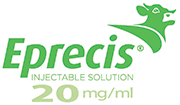
As calving season is upon us, now is the time to plan your calf rearing to ensure that calves get the best start and achieve target growth rates.
First Step in calf rearing is colostrum
Good colostrum management is the first step in the process to calf rearing. Calves should receive the 1st milk, within two hours of birth and consume 3 litres. The use of Hydrometers and refractometers can help to distinguish if the colostrum is of a good quality and has adequate levels of IgG’s. Avoid pooling colostrum and ensure that good hygiene is adhered to.
Milk replacers and rearing calves
Strong milk prices and labour concerns have justified farmers to make a switch to calf milk replacers (CMR’s). The manufacture and feeding of CMR also ensures that disease cross over is minimised, thus assisting in the control of Johne’s disease. Avoid feeding residue/waste milk as this may assist in the growing health issues surrounding antimicrobial resistance (AMR).
When choosing a calf milk replacer, it is important not to purchase solely on price. Quality ingredients, such as high levels of whey-based powders are easily digestible for young calves and supply the necessary protein requirements for skeletal growth and muscle developing. The use of alternative protein sources such as soya, pea and high levels of non-soluble wheat protein should be avoided as these can be difficult for pre-ruminants to digest.
Strategies to ensure that replacement heifers calf down at 24 months of age have seen farmers making a switch to high performance CMR’s that contain protein levels of 26%, assisting heifers to reach their target daily live weight gains. These CMR’s such as Interchem’s ProHeifer have been developed to ensure maximum growth rates during the pre-ruminant stage, especially between days 15 – 42 where calves will have their highest conversion rates. The inclusion of digestive enhancers such as Cylactin in CMR has the added benefit of enhancing micro flora bacteria assisting in rates of absorption and helping avoid scour.
Feeding calves
Questions often arise around frequency of milk feeding to calves, department of agriculture and animal welfare regulations guidelines exist to highlight that calves under 28 days of age must be fed twice per day. This is in line with rumen development and will avoid issues of excess milk travelling into the rumen and causing scour.
Weaning of calves should take place when calves are consuming adequate levels of concentrate feeds, usually between 1 – 1.5 kg per day. A critical factor that is often overlooked in rearing calves is access to fresh clean water, this is necessary to rehydrate calves and assist with the development of rumen microflora. As with all feeding strategies, ensure good hygiene is maintained and examine equipment regularly to ensure it is in good working order.
Many farmers implement a standard operation procedure (SOP) plan, this ensure that the daily feeding regime and management of the calves conforms to a set routine.
Below is an example of a feed table that is suitable for cross bred calves being fed on Interchem’s ProHeifer CMR
| Day | Time | Note |
| Calf born (30kg) | ||
| Day 1 | In 1st 6hours | 3 litres colostrum (may have to split into 2 feeds) |
| Day 1 | 12 hrs later | 1.5 litres colostrum (only feed if hungry) |
| Day 2 to Day 4 | am and pm | 1.5 litres am 1.5 litres pm
Cow’s milk + handful of powder mixed in |
| Day 5 to Day 42 | am
and pm |
Swap to milk powder. Gradual increase volume/feed
2 x 2.25 litres/day mixed at 150g/litre Mix at 40-450C Feed at 390 C. |
| Day 42 to
Day 58 |
am and pm | Reduce feed down to 1.75 litres per feed and down to 1.5 litres by day 58
|
| Day 59 | am and pm | Down to 1 litre of milk
|
| Day 60 | am and pm | am- Nil
pm- 1 litre
The calf can be weaned when it has doubled birth-weight and has consumed 1.5kg of concentrate for three consecutive days |
- Offer fresh ad lib water, feeding straw and nuts from birth.
- 8-12 weeks continue ad lib straw, nuts, water.
Interchem’s ProCalf range of milk replacers are available throughout Ireland through your local agricultural merchant and veterinary surgeon outlet. For more information on calf rearing or on the ProCalf range call 01-4518959 or visit www.interchem.ie.


